In a world grappling with the urgent need to combat climate change, where climate deniers and profit-driven interests often reap vast fortunes, it's the third-world countries with the lowest carbon emissions that bear the harshest brunt of environmental challenges. However, there exists an inspiring initiative that champions sustainable living even in the most underprivileged regions. True progress and a higher quality of life are not solely defined by grand infrastructure and urban landscapes but by the values and intentions that prioritise the well-being of our planet and its resources.
The innovative efforts of the Institute of Development Studies and Practices (IDSP) in Quetta are a testament to the power of ideas that seek to harmonise human development with environmental sustainability.
Far from the bustling, loud, and noisy city, nestled in the heart of Quetta's Hanna Urak region, an extraordinary institution has emerged, where architecture harmoniously blends the elements of earth. Embracing innovative methods of energy generation, this unique university is a testament to sustainable living. Wind turbines and solar panels, provide the electricity required for the university's activities. At the Community Development University (CDU), of the IDSP, every aspect is intentionally designed to honor our planet's precious resources.
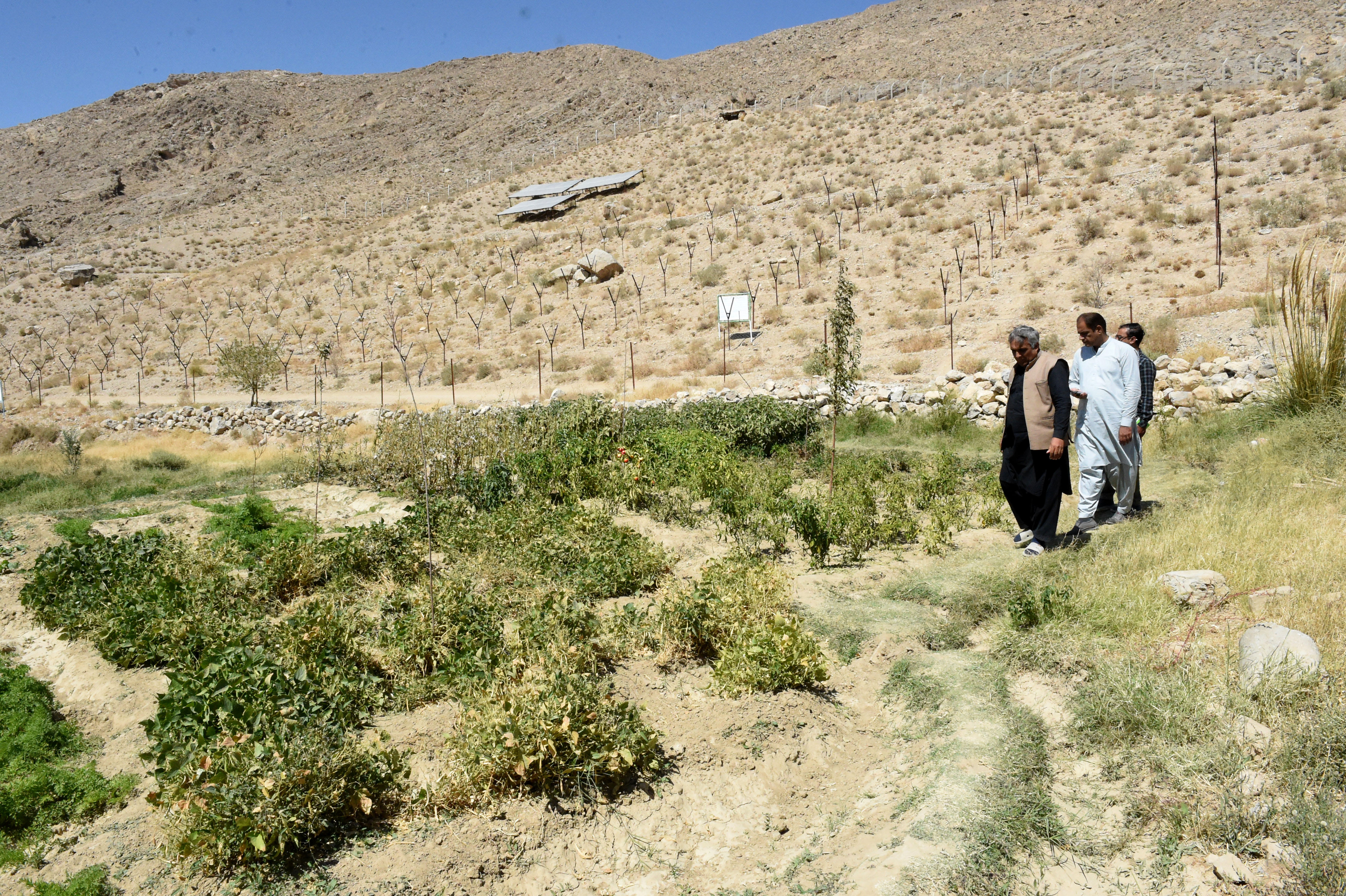
The visionary force driving the creation of this extraordinary campus is Safdar Hussain, the co-director of the University. While Hussain holds a Master's degree in Computer Science, he expresses a disconnect between what he learned in the classroom and its real-world applications. "In classroom, they taught me about computers, how to turn them on, and what to do when they malfunction,” he shares. “But this didn't provide me with the insights I needed to apply these concepts effectively in the community."
In stark contrast to traditional educational institutions, the CDU shatters the traditional notions of formal education. Instead, it places a paramount emphasis on enhancing the skills of its diverse student body, many of whom lack the conventional academic credentials required for certain jobs. To date, over 7,000 students have enrolled in various programmes offered here, with a significant number successfully developing their skills and making substantial contributions to the community.
Hussain underlines their distinctive approach. "We don't reject the importance of education,” he says. “As is often seen in formal institutions marked by exclusionary criteria, eligibility requirements, and strict GPA standards that leave many aspiring students on the sidelines." This sets their institution apart from the conventional university landscape, showcasing their commitment to accessible and skills-focused education.
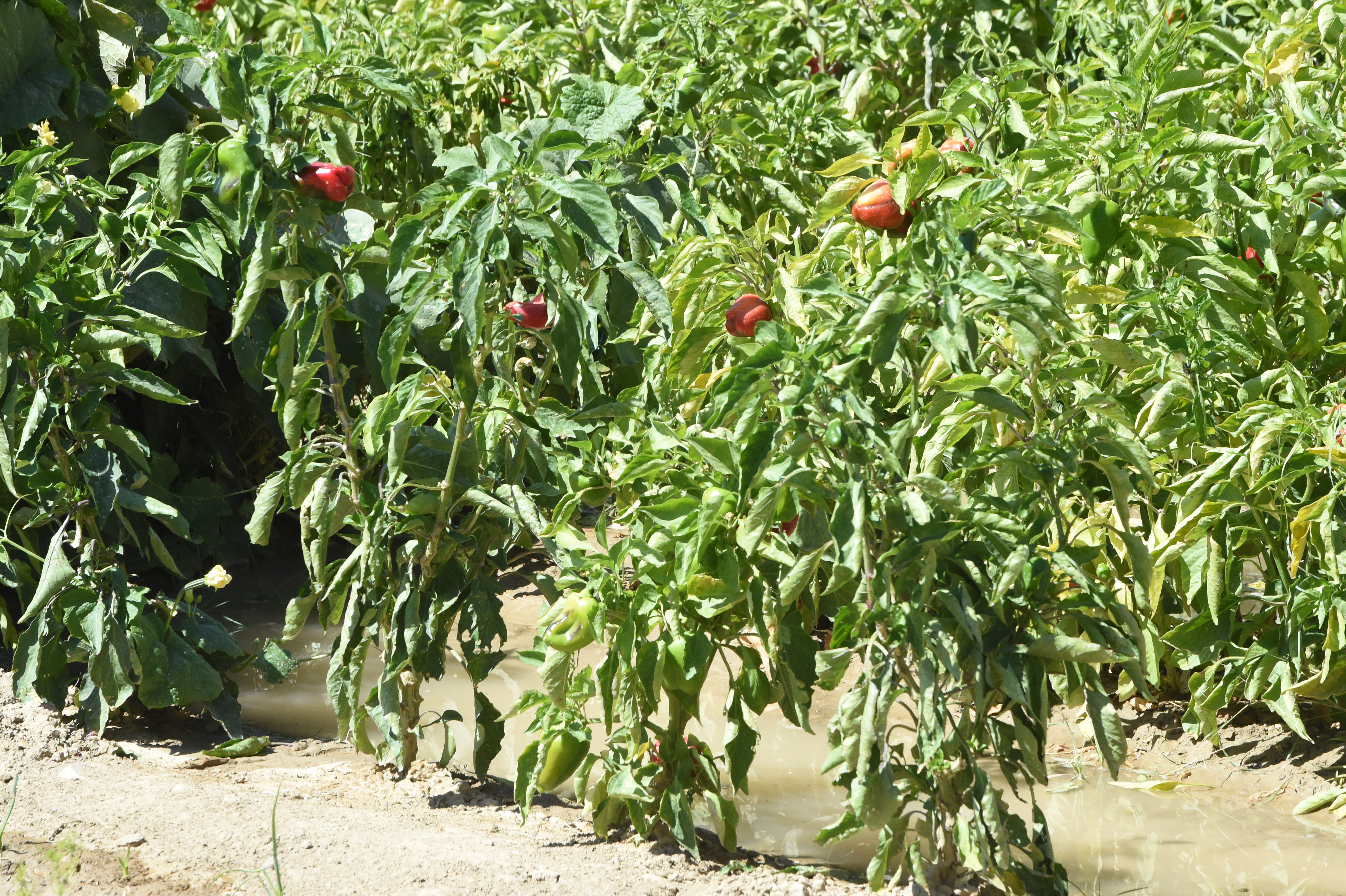 IDSP, a non-governmental organisation, has been making significant contributions to Pakistan since its inception in 1998. Dr Quratulain Bakhteari, the founder, worked for the groundbreaking Community Support Programme before establishing IDSP in Balochistan. According to Hussain, her relentless efforts involved visiting nearly 4,000 villages in the region to dispel the misconception that Balochistan's people are opposed to educating their daughters. As part of a World Bank project, Dr Bakhteari oversaw the development of 2,000 girls' primary schools in Balochistan, enrolling a staggering 200,000 girls in the process. In 1988 as the education minister then, Dr Baktheari was awarded with a life time achievement award by the Government of Balochistan.
IDSP, a non-governmental organisation, has been making significant contributions to Pakistan since its inception in 1998. Dr Quratulain Bakhteari, the founder, worked for the groundbreaking Community Support Programme before establishing IDSP in Balochistan. According to Hussain, her relentless efforts involved visiting nearly 4,000 villages in the region to dispel the misconception that Balochistan's people are opposed to educating their daughters. As part of a World Bank project, Dr Bakhteari oversaw the development of 2,000 girls' primary schools in Balochistan, enrolling a staggering 200,000 girls in the process. In 1988 as the education minister then, Dr Baktheari was awarded with a life time achievement award by the Government of Balochistan.
The establishment of IDSP's campus on the current site, provided by the Government of Balochistan, is a fascinating tale, as recounted by Hussain to The Express Tribune. In the early 2000s, he had a pioneering idea to offer computer-based training and harness the power of the internet. Recognising the lack of suitable spaces for young people, the plan was to create district-level libraries equipped with IT facilities, labs, and discussion clubs. A crucial milestone in this journey was the collaboration with the Khuzdar district government to establish an Information Learning Centre (ILC). The inauguration of this centre presided over by the then Chief Minister of Balochistan, Jam Yousaf, marked a turning point as the government committed to allocating four acres of land for IDSP.
However, he shared that during this process, he successfully navigated the bureaucratic web, from the chief minister to the patwari, without any demands for bribes. It took three years, but ultimately, they secured the land with a payment of four million rupees from the Government of Balochistan.
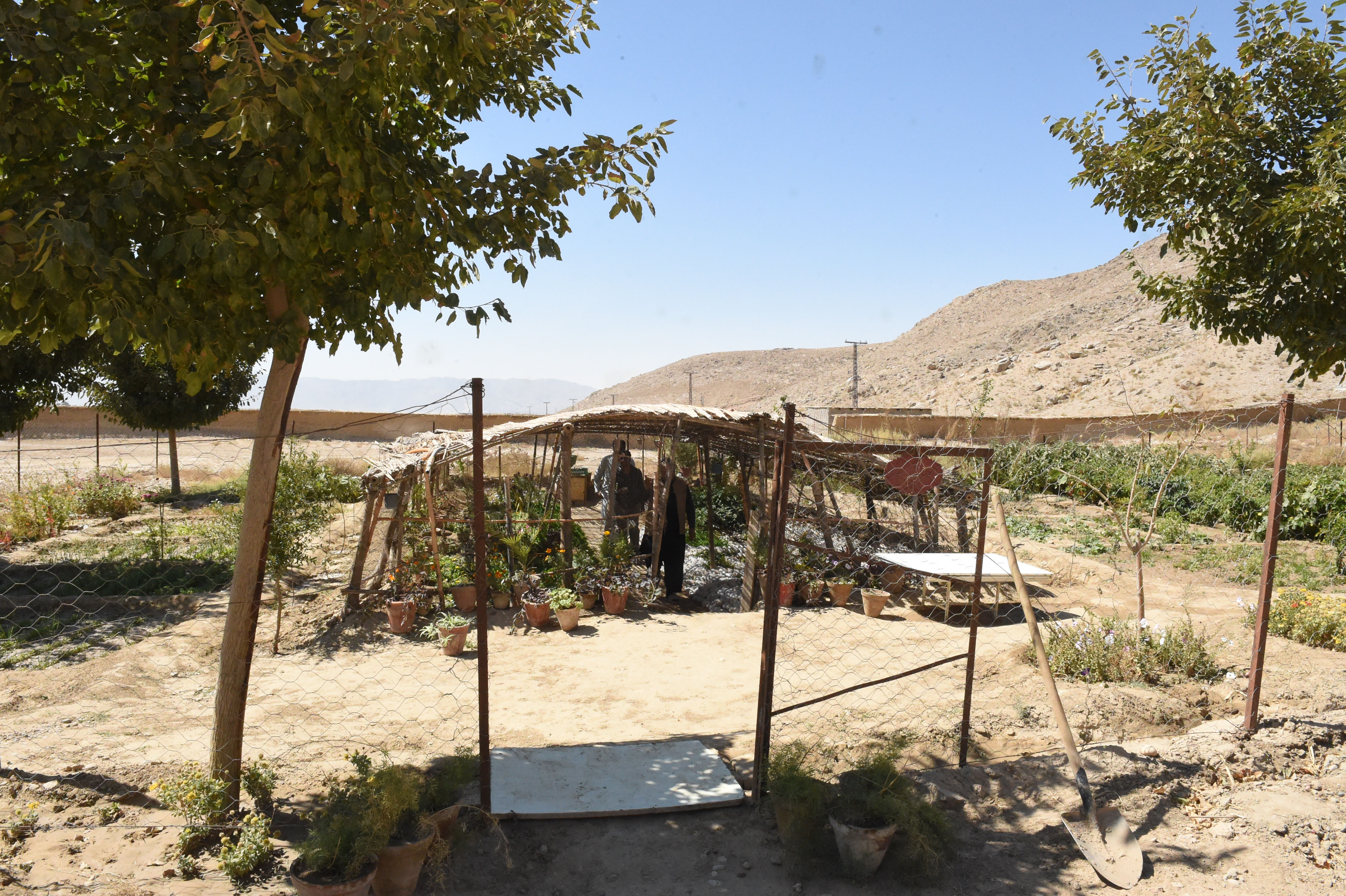
Hussain stated that the land was acquired in 2006, but the campus development commenced in 2015. For the construction, they harnessed local knowledge and indigenous wisdom. "Upon initiating construction, we conducted a thorough survey of Quetta. During our exploration, we were advised to explore the neighbouring areas of the campus, where we discovered numerous instances of community-driven construction. The funds were not funnelled into the cement and builder monopolies; instead, all the resources were reinvested in the local community. Consequently, the entire structure was constructed using mud and features a nine-foot-high roof."
During the visit to the campus for this story, Hussain showcased the diverse aspects of the campus. Notably, the variety of trees planted there, such as Quetta pine, pomegranates, pistachios, olives, and others, were chosen for their minimal water consumption, a practical choice given the region's water scarcity. "The water level in Quetta has decreased to 1000 feet,” shares Hussain. “Recognising that tube wells were an unreliable source, we researched and discovered that the average annual rainfall in Quetta is 220 millimeters. So, where does this water go? It goes to waste. During our construction, we initiated rainwater harvesting to capture this valuable resource. We are presently storing thousands of gallons of water, with the potential to increase this by four to five times, if we had the necessary resources. We don't refine this water, instead, we use it for both agriculture and domestic purposes."
On the other hand, the campus's power generation relies entirely on renewable energy sources, specifically wind turbines and solar panels. Hussain shared a related story, stating, "We conducted a feasibility study for solar power, collecting data from Google, which indicated that Quetta enjoys approximately seven hours of daylight. Over the course of a year, we found that out of 365 days, about 300 days receive ample sunlight, making solar power a viable option. Additionally, we've installed wind turbines, and together, they generate 1200 to 1300 kw of electricity, more than sufficient for the entire campus. The electricity we produce is entirely self-sustaining."
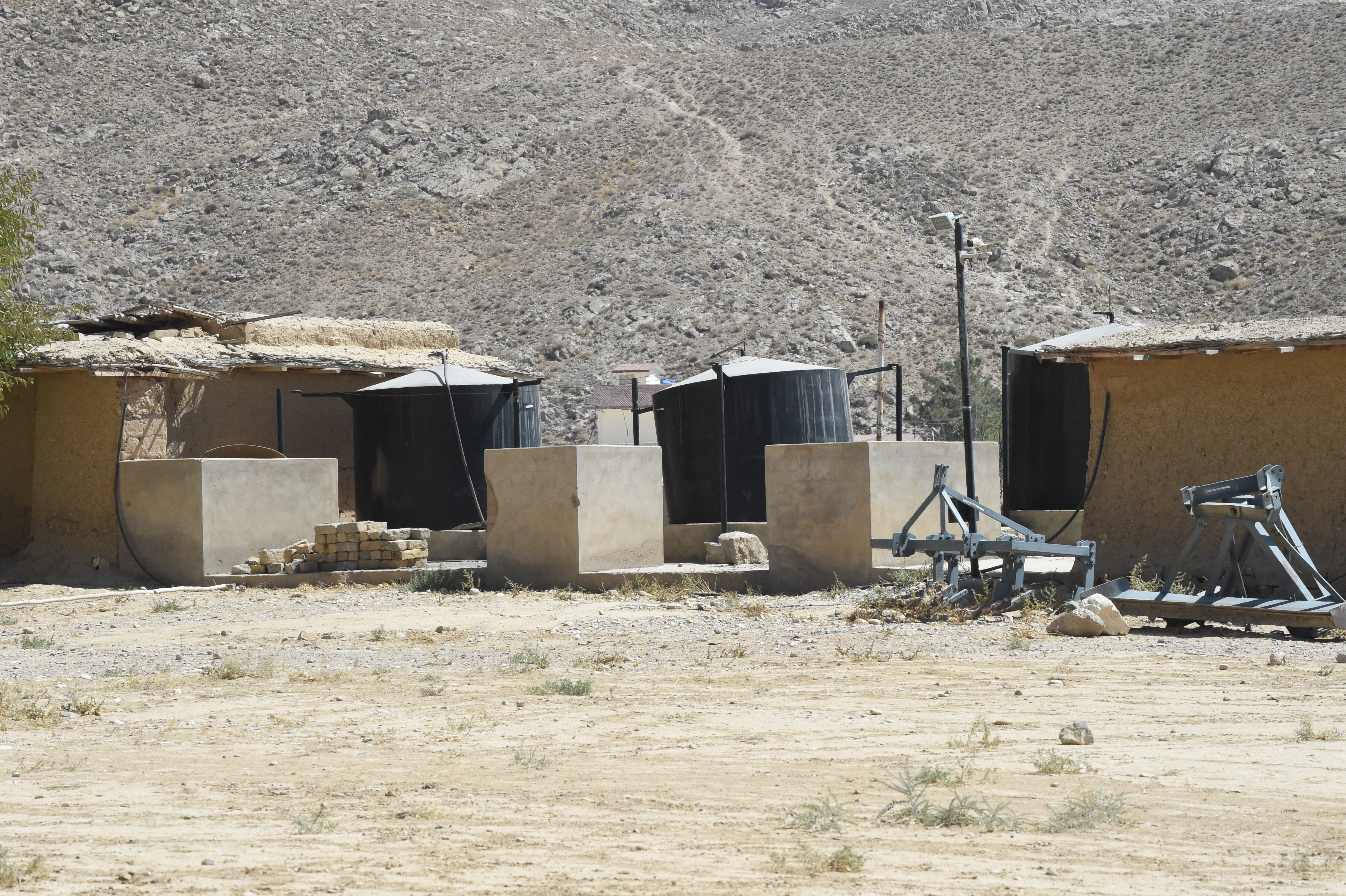
Situated in a remote area far from the city, Hanna Urak boasts its own unique ecosystem, distinct from the urban concrete jungle. This ecosystem also includes wildlife, including snakes and other potentially hazardous creatures. Hussain firmly believes in a non-chemical approach to managing nature's ecosystem, recognising the destructive impact of human intervention. "We devised an innovative solution by consulting with the locals, whose traditional wisdom proved invaluable,” he explains. “This solution effectively safeguards both wildlife and humans. By planting garlic, onions, or lavender, we can naturally deter snakes and insects without resorting to harmful chemicals. We typically plant garlic in October or November, and it remains effective until June. This approach has significantly reduced the issues we previously faced."
As I stepped into the nursery situated on the campus, I was warmly greeted by Mohammad Din, a seasoned gardener. While he has been associated with IDSP for a year, his gardening experience spans 28 years, primarily at the Staff College Quetta. Using locally sourced seeds, Din has skillfully cultivated a variety of crops, including tomato, green pepper, green chili, eggplants, iceberg lettuce, broccoli, coriander, spinach, and onionsl. Hussain highlighted the campus's commitment to cultivating organic produce rather than relying on lower-quality market vegetables. Although these goods aren't intended for commercial sale, the staff is encouraged to purchase them at market prices. In a single season, they generate nearly 80 thousand rupees in earnings, which are reinvested for expansion. One of the major challenges pointed out by Mohammad Din is the scarcity of water.
It is an undeniable fact that livestock plays a significant role in the economic revenue of Balochistan, and the CDU fully harnesses this potential. Hussain mentioned that initially, they acquired and bred 30 to 35 sheep, and now they yield approximately 1.5 million rupees annually. All of these proceeds are reinvested back into the programme and utilised for various needs within the university.
These factors contribute to making this university campus unique. However, what truly sets it apart is the quality of education it offers and the students who actively contribute to the same institution. Bilal Ahmed who enrolled in a photography and filmmaking course here, presently works as an intern filming a multitude of events organised by IDSP. Joining in the 8th grade in 2018, he became an intern in 2022, taking part in covering internal programmes and conducting courses. Another student, Resham Khan, completed the IT Assistant course at IDSP in 2019 and has been an intern in the administrative department for the past year.
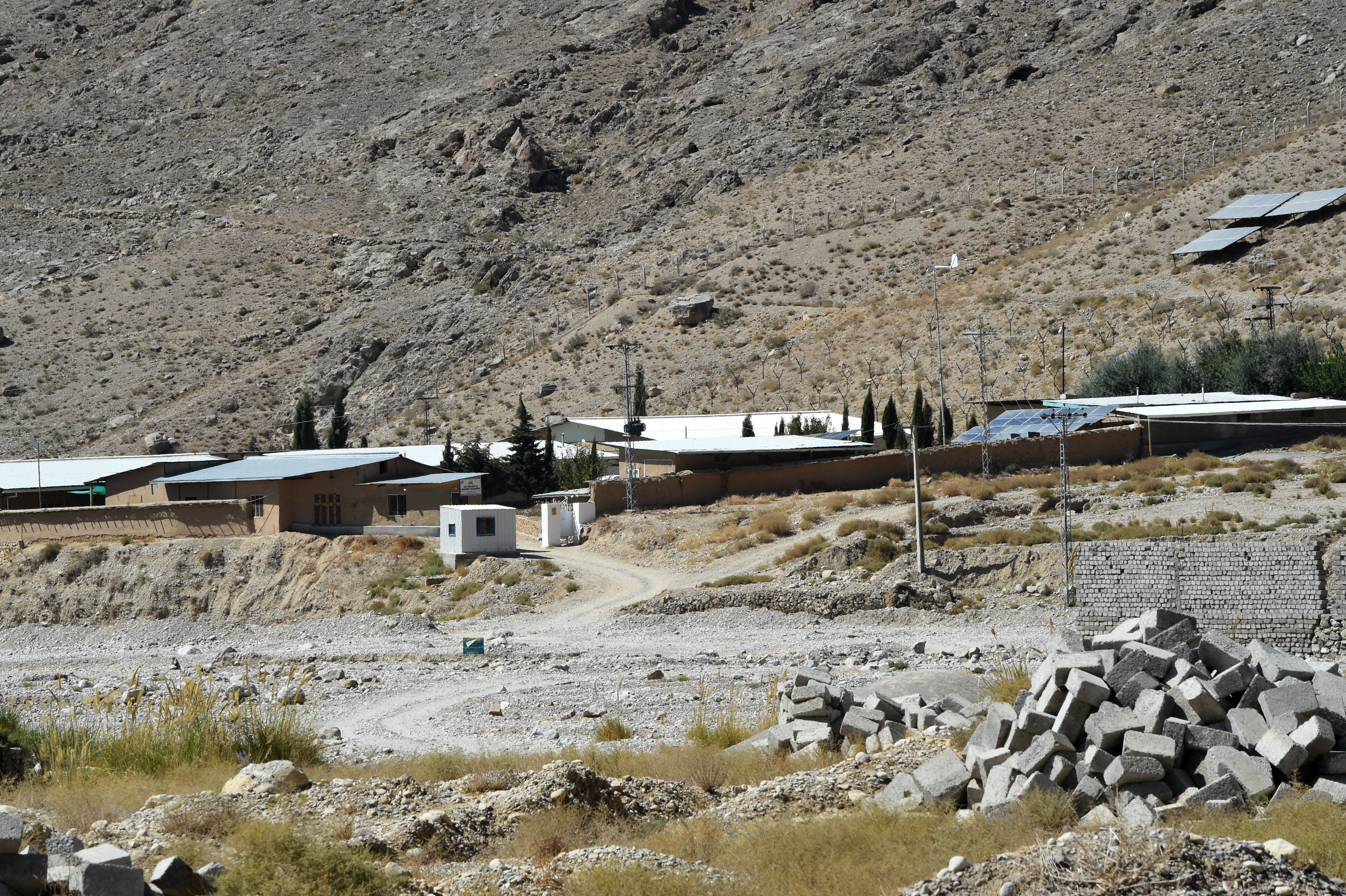
The CDUhas a library with 4,500 books, which has been a part of it since the beginning. Students are not required to stay silent as is the norm in other university libraries. Instead, they are encouraged to have discussions and exchange ideas for their projects.
Discussing IDSP plans to raise awareness of climate change for the locals, Hussain says, "They talk about changing weather patterns, like 34 hours of continuous rain. People are experiencing these changes and discussing them, but they may not be using the same terminology as we do." He further added that our project has become a model for sustainable living. “We discuss these changes with people, especially in the context of agriculture,” he shares. “Dealing with these changes is crucial. For example, the use of plastic bags is a significant concern. If a young person uses seven plastic bags every day, in a year it means in hundreds of plastic bags. When people realise this, they make changes at an individual level.
"Garbage is not a problem; its management is” Hussain points out. “By segregating plastic, glass, organic waste, and paper, we can create organic compost and reusable materials. Segregation is a better approach," he emphasised.
“Everyone at IDSP is a learner with an idea to turn challenges into opportunities for practical, community-level contributions,” Hussain concluded.
Muhammad Zafar Baloch is freelance journalist based in Quetta
All facts and information are the sole responsibility of the writer
